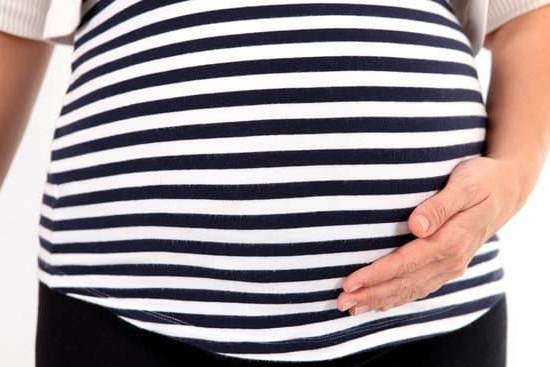Are you wondering “how many days to confirm pregnancy after missed period“? Understanding the menstrual cycle and fertilization is crucial in addressing this question. The menstrual cycle is a complex process that prepares the female body for pregnancy each month. Once fertilization occurs, the body begins to exhibit signs and symptoms of pregnancy, with a missed period being one of the most common indicators.
Aside from a missed period, there are various signs and symptoms that may indicate pregnancy, such as nausea, breast tenderness, fatigue, and frequent urination. These signs may vary from woman to woman and can also be mistaken for premenstrual symptoms. However, they are important factors to consider in confirming pregnancy after a missed period.
In addition to signs and symptoms, home pregnancy tests play a significant role in confirming pregnancy after a missed period. These tests work by detecting the presence of human chorionic gonadotropin (hCG) hormone in urine, which is produced during early pregnancy. Understanding how these tests work is crucial in determining when to take them after a missed period and what factors can affect their accuracy.
Signs and Symptoms of Pregnancy
Pregnancy is a life-changing event that can bring about a lot of joy and excitement for many women. However, the signs and symptoms of pregnancy can vary from person to person. Some women may experience early signs of pregnancy shortly after conception, while others may not notice any symptoms until several weeks into their pregnancy.
Common Signs and Symptoms
Some common early signs and symptoms of pregnancy include missed periods, nausea or vomiting (morning sickness), frequent urination, breast tenderness, fatigue, and food aversions or cravings. It’s important to note that while these symptoms can be an indication of pregnancy, they can also be caused by other factors such as stress, illness, or hormonal changes.
When to Confirm Pregnancy
If you suspect that you might be pregnant due to experiencing one or more of these symptoms, it’s important to confirm your suspicions with a pregnancy test. One question that many women have is “how many days to confirm pregnancy after missed period?” The answer to this question can depend on various factors such as the sensitivity of the home pregnancy test being used and the regularity of your menstrual cycle.
Typically, it is recommended to wait at least one week after a missed period before taking a home pregnancy test for the most accurate results. Waiting too long or testing too soon can affect the accuracy of the test result. If you receive a negative result but still suspect that you might be pregnant, it’s best to consult with your healthcare provider for further guidance.
The Importance of Missed Periods in Confirming Pregnancy
When it comes to confirming pregnancy, missed periods play a crucial role. A missed period is often one of the first signs that a woman may be pregnant. This occurs because, when an egg is fertilized, it attaches itself to the lining of the uterus, which triggers the body to stop shedding the uterine lining as it does during menstruation. As a result, a missed period can be an indicator that a woman may be pregnant.
For women with regular menstrual cycles, a missed period can often be the earliest sign of pregnancy. However, for those with irregular cycles, it may be more challenging to determine if a period has been missed. In these cases, other signs and symptoms of pregnancy such as nausea, breast tenderness, and frequent urination may also help in identifying early pregnancy.
In most cases, it is recommended to wait at least one week after a missed period before taking a home pregnancy test for accurate results. However, some women might experience implantation bleeding around the time of their expected period which can lead to confusion about whether or not they have actually missed their period. In this case, waiting an additional few days before taking the test can provide more accurate results.
| Days to Confirm Pregnancy | Information |
|---|---|
| 1-2 days after a missed period | Pregnancy hormone hCG levels begin to rise but may not be detectable on home pregnancy tests. |
| 1 week after a missed period | Recommended time for taking a home pregnancy test for more accurate results. |
The Science Behind Home Pregnancy Tests
Pregnancy tests work by detecting the presence of a hormone called human chorionic gonadotropin (hCG) in a woman’s urine. This hormone is produced by the developing placenta shortly after the embryo attaches to the uterine lining, typically about 6 days after fertilization. The level of hCG increases rapidly in early pregnancy, doubling every 48 to 72 hours. Home pregnancy tests are designed to detect hCG levels in urine and provide a positive or negative result.
Most home pregnancy tests on the market today are over 99% accurate when used on the day of your missed period. However, some tests claim they can provide accurate results even earlier, such as 4 or 5 days before your expected period. It’s important to note that while some women may get an accurate result with these early tests, for others it may be too soon for hCG levels to be detected, leading to a false negative result.
The accuracy of home pregnancy tests can also be affected by factors such as using diluted urine, not following the instructions properly, or having certain medical conditions like urinary tract infections or kidney disease. It’s important to carefully read and follow the instructions that come with your pregnancy test in order to ensure an accurate result.
If you suspect you might be pregnant but receive a negative result on a home pregnancy test, wait a few days and retest or consult with your healthcare provider for further testing options.
When to Take a Pregnancy Test After a Missed Period
Understanding the Importance of Timing
The timing of taking a pregnancy test after a missed period is crucial in obtaining accurate results. A pregnancy test works by detecting the presence of the hormone human chorionic gonadotropin (hCG) in urine, which is produced by the placenta shortly after a fertilized egg attaches to the uterine lining. It takes time for hCG levels to rise high enough to be detected by a home pregnancy test, so taking the test too early can result in a false negative.
Recommended Timing for Home Pregnancy Tests
For best results, it is recommended to wait at least one week after your missed period before taking a home pregnancy test. Waiting until this time frame allows for hCG levels to increase sufficiently for detection. If you take the test too soon, there may not be enough hCG present in your urine for the test to give an accurate result.
What if the Test Is Negative?
If you receive a negative result on a home pregnancy test after waiting at least one week past your missed period, it’s possible that you may still be pregnant. In this case, it’s advisable to wait another few days and retest. However, if you continue to receive negative results and are experiencing symptoms of pregnancy or have concerns about your menstrual cycle, it’s important to seek medical advice from a healthcare provider.
Factors That Can Affect the Accuracy of Pregnancy Tests
Home pregnancy tests are a common way for women to confirm whether or not they are pregnant after experiencing a missed period. However, there are certain factors that can affect the accuracy of these tests. One such factor is the timing of the test.
The accuracy of a home pregnancy test depends on how soon after a missed period it is taken. Most home pregnancy tests claim to be 99% accurate on the day of your expected period, but research has shown that they are actually most accurate about a week after your missed period. It is recommended to wait at least one week after missing your period to take a home pregnancy test for accurate results.
Another factor that can affect the accuracy of a pregnancy test is improper usage. It’s important to carefully follow the instructions provided with the test kit in order to get reliable results. Improper testing, including taking the test too early or using it incorrectly, can lead to false negatives or false positives. Additionally, certain medications and medical conditions such as kidney disease, ovarian cysts, and certain types of cancer can also potentially interfere with pregnancy test results.
| Factors Affecting Pregnancy Test Accuracy | Details |
|---|---|
| Timing | Most accurate about a week after missed period |
| Improper usage | Following instructions carefully is crucial |
| Medications and Medical Conditions | Some medications and conditions may interfere with results |
Other Methods of Confirming Pregnancy After a Missed Period (Blood Tests, Ultrasound)
After a missed period, many women turn to home pregnancy tests to confirm whether they are pregnant. However, there are other methods of confirming pregnancy that can provide more accurate results. Blood tests and ultrasounds are two common methods used to confirm pregnancy after a missed period.
Blood Tests
There are two types of blood tests that can confirm pregnancy: qualitative blood test and quantitative blood test.
- Qualitative blood test: This test determines the presence of hCG (human chorionic gonadotropin) in the blood, which is a hormone produced during pregnancy. It can confirm whether you are pregnant or not.
- Quantitative blood test: This test measures the exact amount of hCG in the blood, providing information on how far along the pregnancy is and checking for any potential issues.
Ultrasound
An ultrasound uses high-frequency sound waves to create an image of the fetus in the womb. This method can confirm pregnancy by detecting the presence of a gestational sac as early as 5 weeks into the pregnancy. Ultrasounds can also provide an estimated due date and check for any abnormalities or complications.
It’s important to keep in mind that both blood tests and ultrasounds should be conducted by healthcare professionals to ensure accurate results and proper interpretation of findings. These methods provide a more definitive confirmation of pregnancy after a missed period compared to home pregnancy tests.
What to Do After Confirming Pregnancy
After confirming a pregnancy, the next steps and precautions are important to ensure the health and well-being of both the mother and the developing fetus. Here are some important actions to take and precautions to consider:
1. Schedule a Prenatal Appointment: It is crucial to schedule an appointment with a healthcare provider as soon as possible after confirming pregnancy. Regular prenatal care is vital for monitoring the progress of the pregnancy, addressing any potential complications, and ensuring the health of both the mother and baby.
2. Start Taking Prenatal Vitamins: Prenatal vitamins are essential for providing key nutrients such as folic acid, iron, and calcium that support the healthy development of the baby. It is recommended to start taking prenatal vitamins as soon as pregnancy is confirmed.
3. Make Lifestyle Changes: It is important to make certain lifestyle changes to support a healthy pregnancy. This may include quitting smoking, avoiding alcohol consumption, adopting a healthy diet, and getting regular exercise. These changes can positively impact both the mother’s health and the baby’s development.
4. Seek Emotional Support: Confirming a pregnancy can bring about a range of emotions. Seeking emotional support from friends, family, or a counselor can be beneficial during this time of change and adjustment. It can also be helpful in navigating any anxiety or stress related to pregnancy.
5. Understand Maternity Leave Benefits: If you are employed, it’s important to understand your maternity leave benefits and plan ahead for time off work. Communicating with your employer about your pregnancy will allow for adequate planning for your maternity leave.
It is important to remember that every pregnancy is unique, so discussing individualized next steps and precautions with a healthcare provider is essential for personalized care.
Conclusion
In conclusion, it is common for women to wonder “How many days to confirm pregnancy after missed period?” The answer to this question can vary depending on individual circumstances, but generally, waiting at least one week after a missed period is recommended for the most accurate results from a home pregnancy test. It’s important to remember that every woman’s body is different, so some may get an accurate result sooner while others may need to wait longer.
Once a pregnancy is confirmed, whether through a home test or by a healthcare provider, seeking medical advice and support is crucial. A healthcare provider can provide valuable guidance on prenatal care, nutrition, and lifestyle changes to ensure the health of both the mother and the developing fetus. They can also address any concerns or complications that may arise during the course of the pregnancy.
Additionally, it’s important for expectant mothers to reach out for emotional support and guidance. Pregnancy can bring about a wide range of emotions and challenges, and having a strong support system in place can make a significant difference. Whether it’s through family, friends, or support groups, finding sources of emotional support is essential for navigating the journey of pregnancy and motherhood.

Welcome to my fertility blog. This is a space where I will be sharing my experiences as I navigate through the world of fertility treatments, as well as provide information and resources about fertility and pregnancy.





